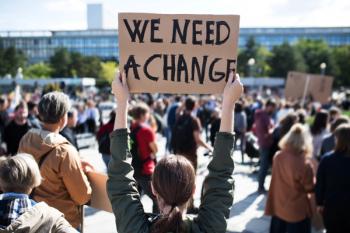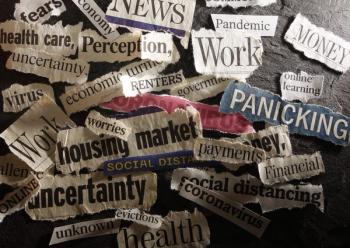
The Goldwater Rule: Preparing for the Upcoming Election
A comment on the Goldwater Rule from our readers…
FROM OUR READERS
This article is a response to the articles
In his Psychiatric Times article,1 H. Steven Moffic, MD, reflected on the relative quiet on the psychiatric front, speculating that fear of defying the Goldwater Rule may have silenced the groundswell of comments by psychiatrists.2
Even with the Goldwater Rule as a template for guiding psychiatrists’ public opinions without a psychiatric assessment, it is clear how quickly the politics of personal destruction can ensue, as evidenced during the past election. The blatant misuse of psychiatric terminology by psychiatrists to dismantle President Trump’s mental state was prevalent and one sided. The late Alan A. Stone, MD, a leader in both psychiatric ethics and law, pointed out in his review of Bandy X. Lee, MD’s book, The Dangerous Case of Donald Trump: 27 Psychiatrists and Mental Health Experts Assess a President,2 many of the psychiatrists involved in the book used the same derogatory labels as the psychiatrists who diagnosed Goldwater in 1964: narcissistic personality disorder, paranoid personality, bipolar disorder, delusional disorder, presenile dementia, and impulsivity.3
Most would agree with Dr Moffic’s proposition that psychiatrists be allowed to voice an opinion regarding political policies of our presidential candidates. Dr Stone clarified, “Psychiatrists enjoy freedom of speech-just not in their professional capacity.”3 But given the clear division of our country regarding complicated issues such as climate, energy, immigration, foreign wars, it is not difficult to speculate how a psychiatrist passionate about a cause can lose track of professionalism to disparage the mental state of candidates or make reference to their dangerousness. According to Dr Stone, although Dr Lee “embraced the ethical and clinical importance of the Goldwater Rule,” she believed that Trump’s mental disabilities were so great that she had an overwhelming duty to warn.3
Given the bombardment of psychiatric opinions of Trump during the past election, it would not be difficult for most psychiatrists unaware of the circumstances surrounding Goldwater’s presidential run to assume that the critiques of Trump’s mental state were acceptable due to psychiatry’s duty to the health of society at large. What about the use of “duty to warn,” a phrase adopted from Tarasoff and utilized by Dr Lee for her 2017 conference at Yale University to call attention to Trump’s mental instability? Dr Stone notes that James Gilligan, MD, considered a leading authority on violence, described Tarasoff as “a positive obligation to speak out publicly"3 about matters of dangerousness (as expressed in Dr Gilligan’s chapter in Dr Lee’s book).2 Dr Stone states, on the other hand, “Tarasoff was never about an obligation to speak publicly. The legal duty to warn or to protect is not a duty to go public.”3
It is best said by James L. Knoll IV, MD, and Ronald W. Pies, MD, in their Psychiatric Times article, “Psychiatry, ‘Dangerousness,’ and the President”: “Thus, those who use the terms ‘dangerousness’ or ‘duty to warn’ in a general, socio-poliotical sense-as in, ‘Trump is a danger to the country and we have a duty to warn the public’ are misappropriating these terms from their legitimate medico-legal context.”4
The authors go on to say, “In our own view, labeling a (clinically unexamined) public figure as ‘dangerous’ can do as much or more harm as promulgating a specific psychiatric diagnosis. Thus, the supposed distinction between ‘diagnosing’ a public figure and labeling that individual as ‘dangerous’ is spurious and misleading.”4
I hope the above comments spurred on by Dr Moffic are helpful in clarifying our role as professionals as we prepare for the upcoming presidential election.
Dr Varas is a psychiatrist in Westwood, New Jersey.
References
1. Moffic HS. What can and should psychiatrists say about the presidential races in the United States and elsewhere? Psychiatric Times. January 25, 2024.
2. Lee BX, ed. The Dangerous Case of Donald Trump: 27 Psychiatrists and Mental Health Experts Assess a President. Thomas Dunne Books; 2017.
3. Stone A. The psychiatrist’s Goldwater Rule in the Trump era. Lawfare. April 19, 2018. Accessed February 5, 2024.
4. Knoll JL IV, Pies RW.
Newsletter
Receive trusted psychiatric news, expert analysis, and clinical insights — subscribe today to support your practice and your patients.







